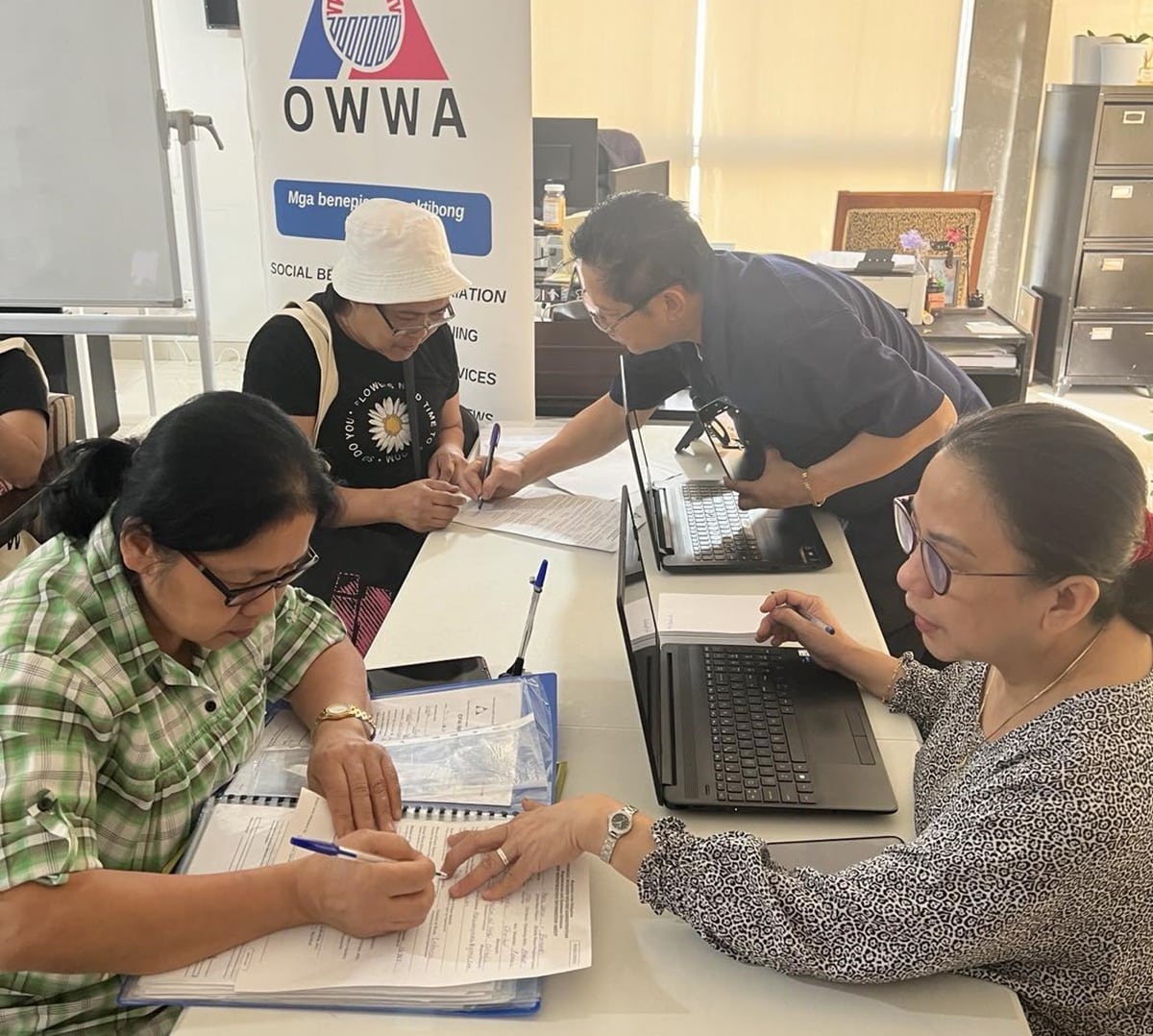
FOR TRIP HOME A photo from the Overseas Workers Welfare Administration shows Filipinos filling out documents for their repatriation at its Lebanon office.
The Department of Social and Welfare Development (DSWD) is ready to provide financial aid to returning Filipino workers from Lebanon through its various programs, including a one-time payout for those “in crisis” as well as livelihood assistance for those planning to leave behind their jobs in the Middle East.
DSWD spokesperson and Social Welfare Assistant Secretary Irene Dumlao said on Thursday that the Assistance to Individuals in Crisis (AICS) and Sustainable Livelihood Program (SLP) were aimed at helping overseas Filipino workers (OFWs) get back on their feet after getting caught in the middle of rising violence in Lebanon.
“We will ensure that appropriate interventions will be extended to them,” Dumlao said, adding, “But it is important that they first be assessed by social workers to determine the needed assistance for them.”
A total of 47 OFWs from Lebanon arrived at Ninoy Aquino International Airport Terminal 1 on Thursday afternoon.
They were the latest batch of domestic workers to leave the conflict-stricken country out of the over 480 who have asked to be repatriated by the Philippine government since October 2023.
Dumlao said the DSWD assistance was on top of the other forms of aid being provided by the Department of Migrant Workers for OFWs.
Start-up fund
Under AICS, OFWs could get a quick dole out worth P10,000, while those eligible for SLP could receive P15,000 as start-up capital for their chosen venture under the program’s microenterprise development track.
The returning Filipino domestic workers may also be eligible for the Ayuda sa Kapos ang Kita Program or Akap, subject to the assessment of a social worker, said Dumlao.
Akap is one of the DSWD’s financial aid programs for minimum wage earners struggling to meet their daily needs due to inflation.